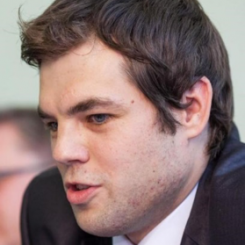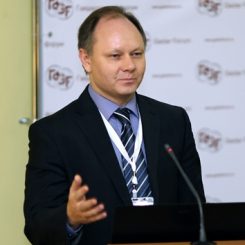Igor Makarov, Y.-H. Henry Chen, and Sergey Paltsev
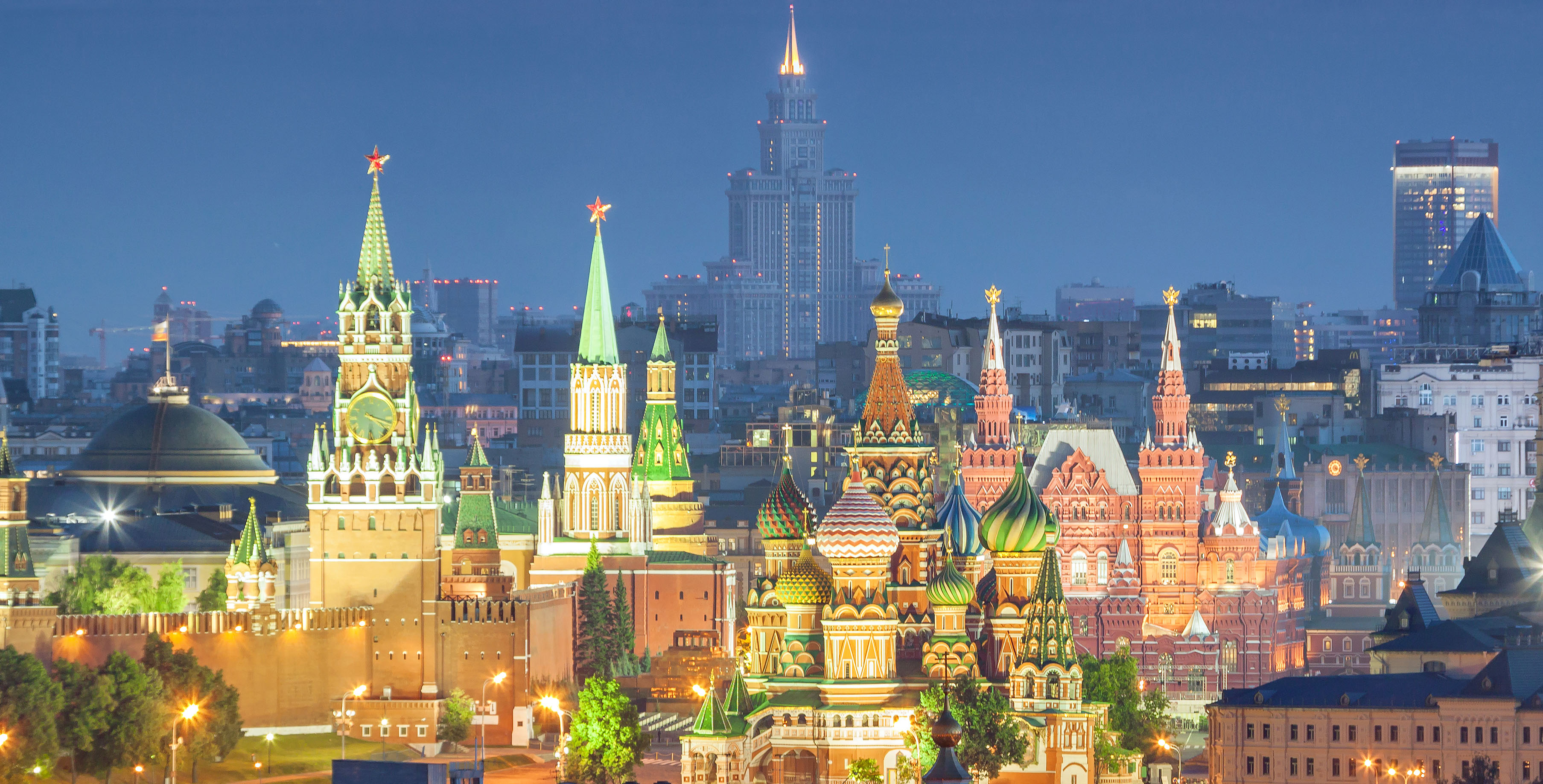
The Paris Agreement not only writes the rules of the international climate regime for the coming decades, but also reflects the consensus of the world community regarding future evolution of the global energy landscape towards low-carbon development. The study shows a number of scenarios of how this future landscape would affect the Russian economy, one that is highly dependent on the production and export of fossil fuels. Even relatively modest national targets declared by the parties of the Agreement by 2030 within their Nationally Determined Contributions (NDCs) bring some risks for the Russian economy, for example, those associated with the decreasing demand for energy imports from Russia (see Figure 1) or potential additional market barriers for Russian exporters of energy-intensive products.
However, these risks concern primarily specific sectors, are manageable, and are unlikely to dramatically affect Russia’s general economic performance. At the same time, any tightening of NDCs beyond 2030 would become a significant obstacle to Russian economic growth. Risks associated with the Paris Agreement slightly depend on Russia’s formal participation in the international climate regime. A potential non-ratification of the Agreement would not improve Russia’s position and probably would lead to additional risks for Russian exporters.
For Russia, it is critically important to get ready to mitigate the risks associated with the Paris Agreement by adjusting itself to the new energy landscape. Diversification of the economy is the major response. This paper simulates three simple diversification scenarios showing that redistribution of incomes from the energy sector to the development of human capital would help avoid the worst possible outcomes. The authors show that the magnitude of GDP increase can be in the order of 1-4% relative to the no-diversification scenario. While the development of a full-scale strategy of adaptation of the Russian economy to a low-carbon future is beyond the scope of any academic paper, the authors advocate for the acceleration of this process by Russian industrial, academic, and government experts. Their results provide the initial exploration of the major areas to focus on for such a strategy.
The authors argue that the objective for this strategy should be broader than just the planning of low-carbon development. In addition to the plans to support low-carbon technologies that are most relevant to the Russian market and to introduce new regulations and legislative incentives to promote low-carbon development (including emissions disclosure requirements and carbon pricing schemes), the strategy should find ways to address three types of risks: risks of reducing energy exports, risks of additional market barriers to Russian exporters of energy-intensive goods, and risks of relying on outdated energy technologies. The post-Paris energy landscape poses a challenge for Russia to gradually change the model of its economic development, launch the process of diversification of the economy, and elaborate the new comprehensive development strategy identifying its new position in the world economy. The current way of fossil export based development will be difficult to sustain in the coming decades, regardless of Russia’s own climate policy choices.
Figure 1. Russia’s energy exports (Exajoules) in:
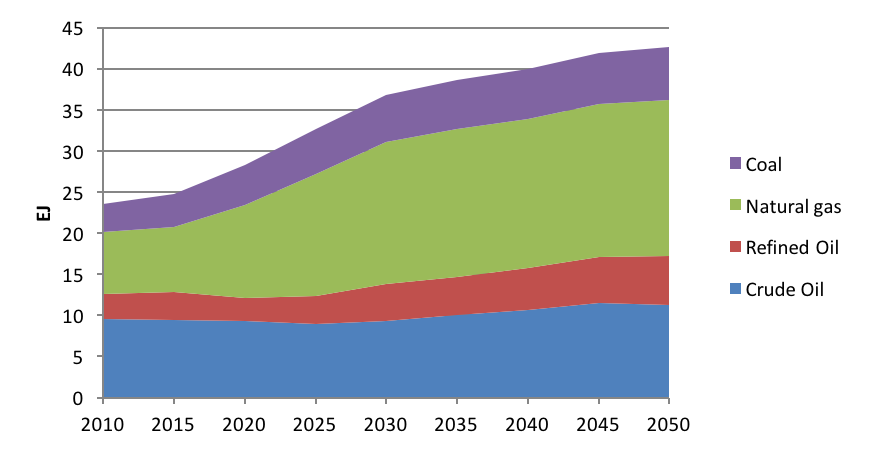 |
|
a) the Reference scenario |
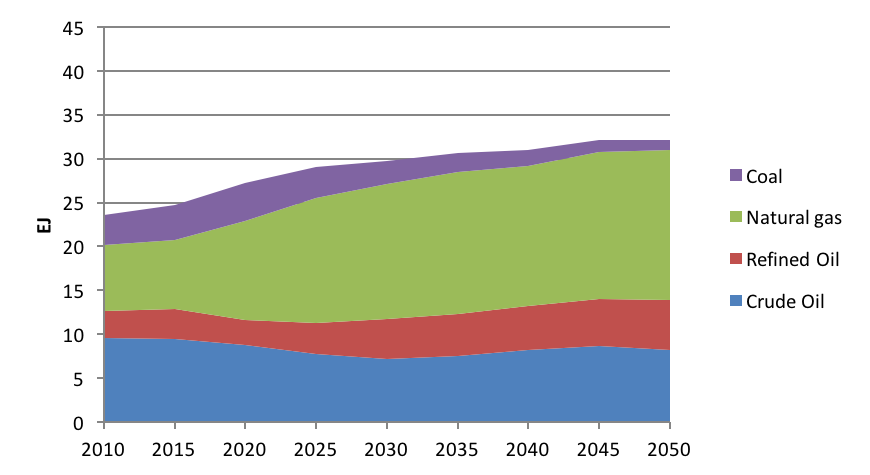 |
|
b) the ParisForever scenario |
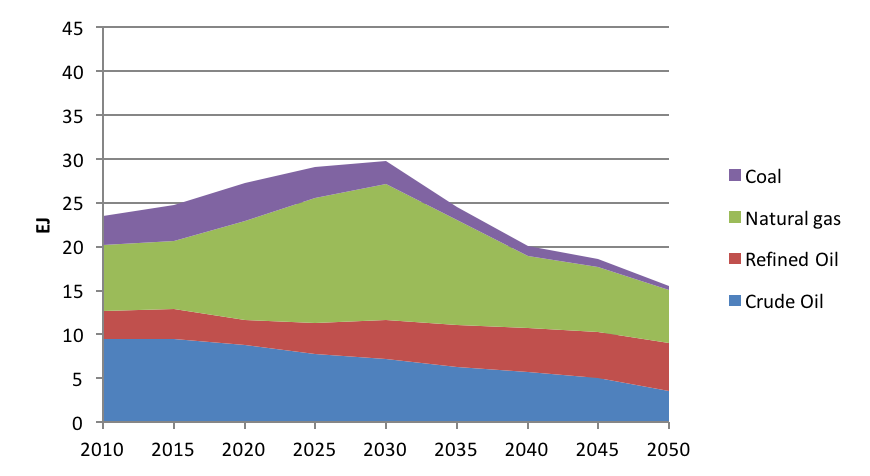 |
|
c) the Paris2C_RussiaPolicy scenario |
References
Makarov, I., Y.H. Chen, and S. Paltsev, “Finding Itself in the Post-Paris World: Russia in the New Global Energy Landscape.” MIT-CEEPR Working Paper 2017-022
Acknowledgments
The authors are thankful for the support provided by the MIT Skoltech Seed Fund Program and by the Basic Research Program of the National Research University Higher School of Economics.
Further Reading: CEEPR WP 2017-022



